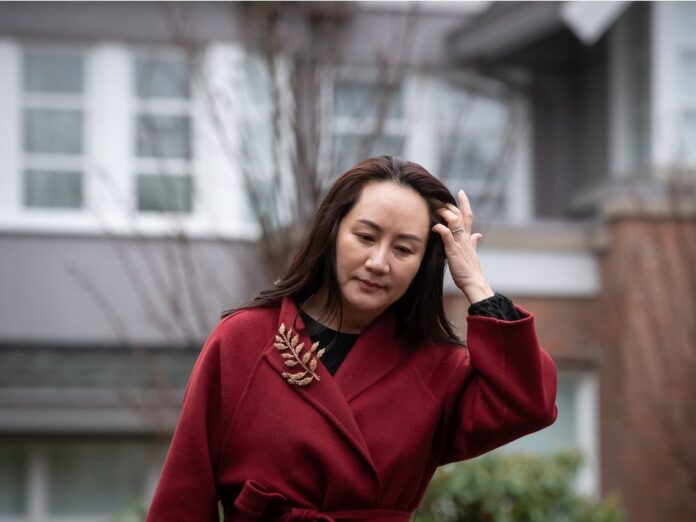
Security analyst Jayson Allen testified that a senior RCMP officer emailed the FBI the day after Meng Wanzhou was arrested at YVR.
A security analyst who monitors emails to and from the RCMP says a senior Mountie emailed the U.S. Federal Bureau of Investigation the day after a Huawei executive was arrested at Vancouver’s airport.
Jayson Allen told a B.C. Supreme Court hearing Monday in the extradition case of Meng Wanzhou that the officer sent the email on Dec. 2, 2018.
Immigration lawyer outlines Meng defence team’s strategy for upcoming days | Vancouver Sun – YouTube
Allen testified that a manager asked him to do two searches of Staff Sgt. Ben Chang’s outgoing emails, first from Dec. 1, 2018, to Oct. 7, 2019, and a second covering part of the same period, with the same results.
He said he found one email to the FBI from a total of 116 external emails that were sent by Chang, who court has heard was dealing with requests for information from the law enforcement agency.
Meng was arrested during a stopover in Vancouver at the request of the United States, and her legal team has alleged their client was questioned by the Canada Border Services Agency without a lawyer for nearly three hours before the RCMP took her into custody, amounting to an abuse of process.
The Huawei CFO is wanted on fraud and conspiracy charges over allegations that she and the company put a bank at risk of violating U.S. sanctions in Iran, allegations both Meng and Huawei deny.
The contents of Chang’s email to the FBI were not revealed in court, which heard the officer’s email account was deleted when he retired in July 2019.
The court heard in November that Chang has obtained counsel and will not testify at the evidence-gathering hearings.
Meng’s lawyers allege Chang illegally passed on serial numbers of her electronic devices to the FBI after they were seized at the airport, but an RCMP officer who oversaw the executive’s arrest testified last month that she could not determine if that was the case.
Scott Fenton, one of Meng’s lawyers, asked Allen if he could have missed some emails if Chang sent them using upper- or lowercase letters in his email address.
“It’s not case-sensitive. It’s all the same email,” Allen said.
Crown and defence lawyers agreed on a statement of facts regarding two issues.
The first was that John Linde, the director of operations for the Canada Border Services Agency at the airport, did not suggest to any of his officers that they should not take further notes related to Meng’s arrest.
Nicole Goodman, the CBSA’s chief of passenger operations at the airport, testified last week that she received instructions from another superior not to create additional notes, in case they were subject to an access to information request.
The statement read in court says that a few weeks after Meng’s arrest, Linde attended a meeting with Roslyn MacVicar, who was then the director general for the border services agency in the Pacific region and to whom he reported directly, as well as Goodman, who reported to him.
“He does not have a record of the exact date. He also does not recall whether the meeting was in person or by telephone or what the meeting was specifically about, but he does believe the meeting related to the Meng file,” the statement says.
During the meeting, Linde recalled that MacVicar mentioned that further notes should not be created and that the comment may have related to access to information requests.
Linde assumed that MacVicar directed the comment about not taking additional notes to Goodman because she had more involvement with the file, the statement says.
“He does not believe that the comment was made with intention to suppress, conceal, recast or withhold information about the Meng matter.”
The second matter in the statement of facts says all outgoing emails that Allen searched during the specified time related to Chang would have been included in his scan, regardless of whether a cellphone, desktop or laptop was used to send them.
Source: VANCOUVER SUN
